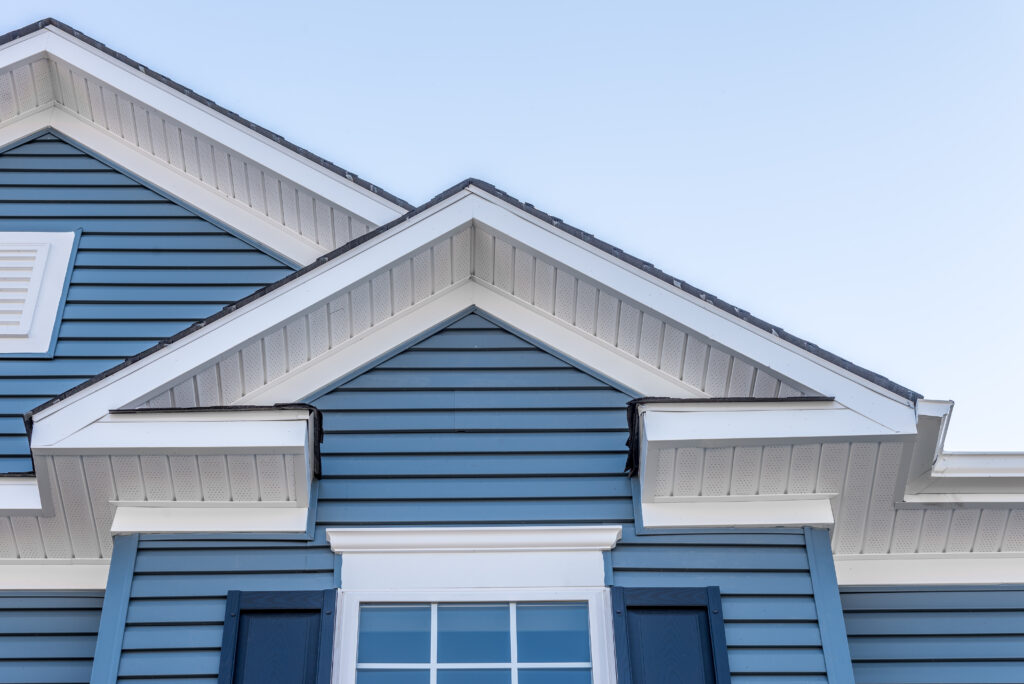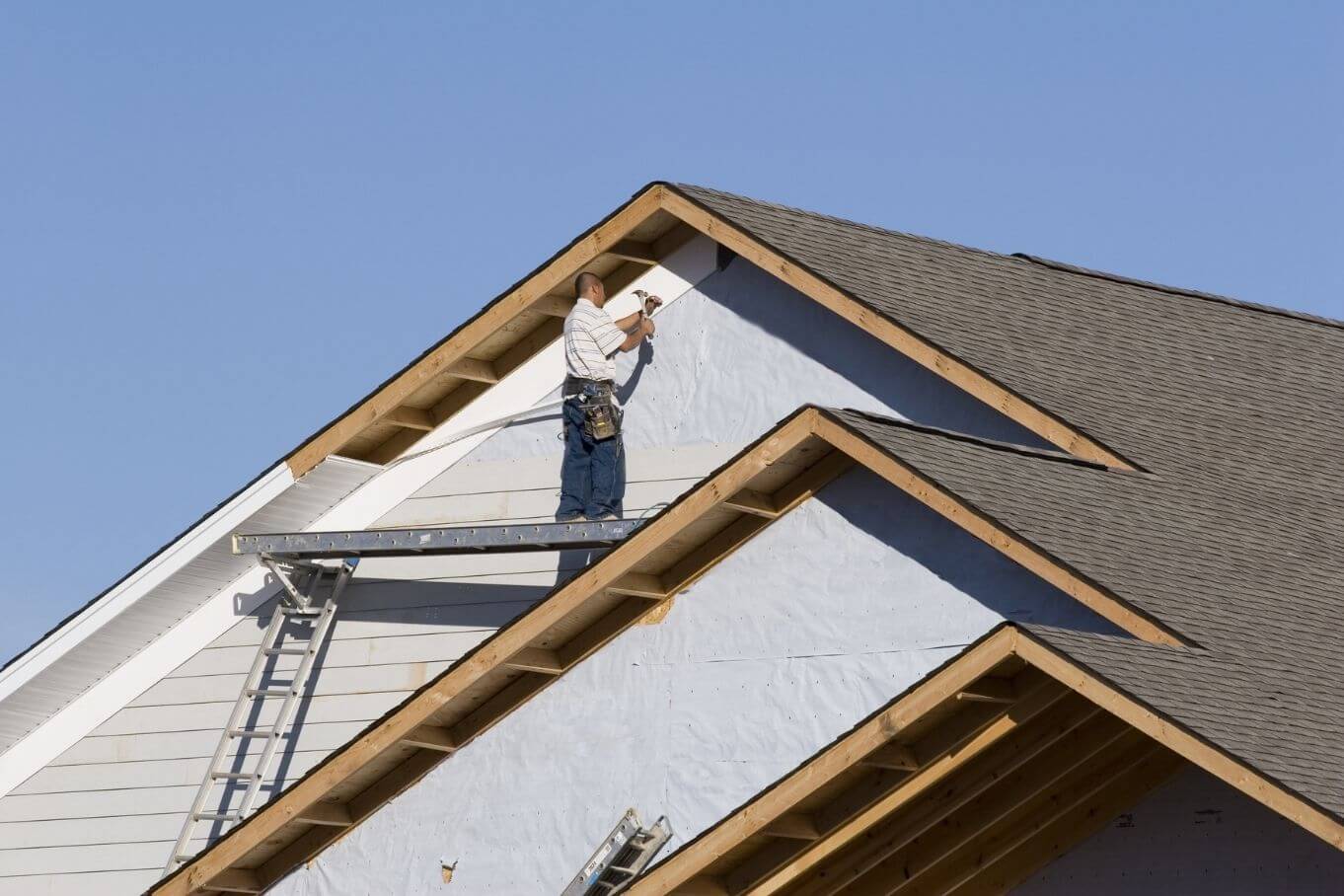Skilled Morris Siding Contractor Providing Customized Exterior Solutions
Skilled Morris Siding Contractor Providing Customized Exterior Solutions
Blog Article
The Essential Guide to the Different Kinds Of House Siding and Their Special Benefits
In the world of home enhancement, choosing the right house siding is an important choice that influences both visual allure and functional efficiency. With so lots of options to think about, which house siding material truly stands out for your details project?
Wood House Siding
Wood siding, a preferred choice for residential exteriors, offers a timeless visual that incorporates all-natural appeal with structural integrity. This siding product is offered in different styles, consisting of clapboard, tiles, and board-and-batten, enabling property owners to tailor their appearance to match their style preferences. Timber home siding is normally crafted from resilient varieties such as cedar, redwood, or ache, which are understood for their durability and capacity to endure ecological stressors.
Among the main benefits of timber siding is its superb insulation residential or commercial properties, which can add to energy efficiency and reduced heating expenses. In addition, wood house siding is biodegradable, making it an environmentally friendly alternative when sourced sustainably. Regular upkeep, consisting of painting or discoloration, can extend its life-span and enhance its look, permitting property owners to maintain the natural appeal of the timber.
However, prospective downsides consist of susceptibility to insects, rot, and weather damage, demanding adequate treatment and maintenance - morris siding contractor. In spite of these problems, when correctly taken care of, timber siding can offer a beautiful and sturdy remedy that boosts the personality of a home while offering a warm, welcoming environment

Plastic Exterior Siding
Vinyl siding has actually become a leading option for home owners seeking a low-maintenance exterior option that incorporates toughness and affordability. This functional material is crafted from polyvinyl chloride (PVC), making it immune to various climate condition, including wetness and UV rays. Consequently, vinyl exterior siding does not warp, rot, or discolor, ensuring lasting aesthetic allure.
Among the key benefits of plastic house siding is its considerable variety of styles and shades, enabling home owners to achieve the preferred try to find their home without the requirement for regular repainting. Additionally, plastic house siding is easy to set up, which can considerably reduce labor expenses during construction or renovation jobs.
Vinyl exterior siding additionally adds to energy performance. Lots of choices attribute insulation backing, which enhances thermal efficiency, aiding to keep comfy indoor temperature levels and potentially decreasing energy expenses. In addition, its smooth surface area facilitates easy cleaning, requiring only periodic washing with a garden hose pipe to eliminate dust and particles.
Fiber Concrete House Siding
Fiber concrete home siding has actually acquired traction among property owners and home builders alike because of its exceptional combination of sturdiness and aesthetic adaptability. Composed of a mix of sand, cement, and cellulose fibers, this siding option is crafted to endure extreme weather condition problems, including high winds, hefty rain, and temperature changes, making it a long-lasting option for domestic outsides.
Among the primary advantages of fiber concrete home siding is its resistance to pests, such as termites, and its non-combustible nature, offering improved fire safety and security. morris siding contractor. Additionally, it is available in a vast range of designs, colors, and appearances, allowing homeowners to accomplish their desired aesthetic without sacrificing performance
An additional benefit is its reduced upkeep needs; fiber concrete house siding normally needs paint or discoloration every 5-10 years, which is much less regular than other products. Additionally, its long life adds to a reduced general expense of possession, as it lowers the demand for constant repair services or substitutes.
Eventually, fiber concrete house siding stands for a superb financial investment for those looking for a resistant, eye-catching, and versatile exterior option, combining both form and feature to boost the home's curb appeal.
Metal Exterior Siding
The appeal of steel exterior siding exists in its durable longevity and modern aesthetic charm, making it a preferred option for modern style. Available in materials such as aluminum and steel, metal house siding offers a variety of surfaces and shades, permitting homeowners to achieve a customized look that complements their layout vision.

Energy performance is an additional significant advantage, as lots Recommended Reading of steel house siding items are created with insulation alternatives that help control interior temperatures. This can cause minimized energy expenses in time. Additionally, steel siding is often recyclable, making it an eco-friendly selection for sustainability-minded house owners.
The installation procedure for steel home siding can be fairly straightforward, causing a quicker turn-around time for construction projects. In general, metal siding incorporates performance and style, making it a practical alternative for those looking for a visually enticing and enduring outside surface.
Brick and Rock Exterior Siding
Brick and rock exterior siding stands out as a classic option that enhances the visual charm of any kind of home. Understood for their resilience and reduced maintenance, these products supply an outstanding return on investment while boosting the residential property's aesthetic appeal. Readily available in various shades, textures, and patterns, block and rock can be tailored to match diverse building designs, from conventional to modern-day.
Among the key benefits of brick and stone home siding is their power efficiency. Both materials have all-natural insulating properties that help control interior temperature levels, possibly decreasing home heating and air conditioning costs. Additionally, they use superior fire resistance contrasted to various other siding alternatives, adding to boosted safety.
One more advantage is their long life. Block and stone can last for decades, commonly calling for very little upkeep beyond occasional cleansing. Unlike timber home siding, they are unsusceptible bugs and rot, making certain a long-lasting outside that endures the elements.
Final Thought
In summary, the option of home siding significantly affects a home's visual appeal, power effectiveness, and maintenance see this requirements. Each kind of home siding-- whether wood, vinyl, fiber brick, concrete, or steel and stone-- provides one-of-a-kind benefits customized to different homeowner preferences and ecological problems. Understanding these options allows informed choices that improve both the toughness and visual charm of household exteriors. Ultimately, choosing the appropriate home siding is necessary for achieving an equilibrium in between functionality and layout in domestic architecture.
One of the main advantages of wood house siding is its exceptional insulation buildings, useful link which can contribute to energy effectiveness and reduced heating expenses. Furthermore, wood house siding is biodegradable, making it an ecologically pleasant option when sourced sustainably.One of the main advantages of steel siding is its resistance to different ecological factors.Energy effectiveness is an additional significant advantage, as several metal home siding items are designed with insulation choices that aid regulate indoor temperatures. Each kind of house siding-- whether wood, vinyl, fiber concrete, brick, or metal and rock-- provides distinct advantages tailored to numerous home owner preferences and ecological problems.
Report this page